
Alumnae Oral Histories
2000-2009
| On the political national scene, this decade was defined by the presidency of George W. Bush. Massachusetts becomes the first state in the nation to allow same-sex marriages. At the College, Ruth Simmons resigns as president, to head Brown University. Spring 2001 sees student protests in reaction to the announcement. Under president Carol T. Christ, the College moves to increase its presence in the global community by reaching out to young women in countries in the Middle East and Asia. Race and gender issues continue to appear on campus. Student reaction to the Gore-vs-Bush campaign in 2004 is documented. The campus center opens in 2007. |
Full videos
Scroll down for a list of narrators and links to transcripts.
Narrators
Katharine Evans, Class of 2000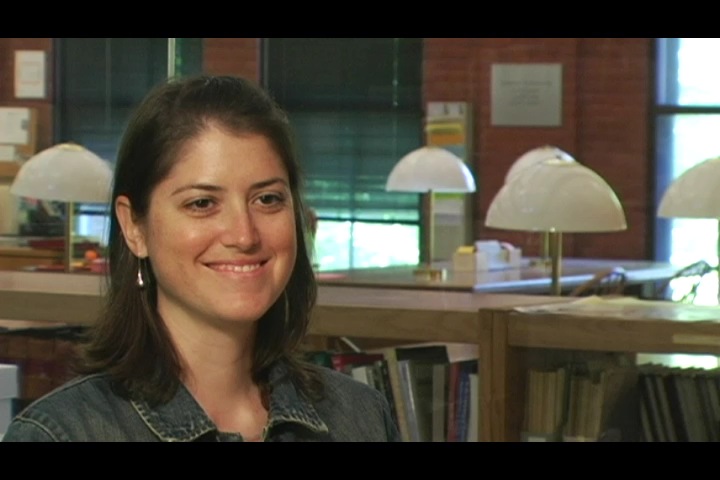
In this oral history, Katharine Evans discusses her decision to attend Smith, her experiences playing sports (field hockey, lacrosse, and squash) and living in Lamont House, and her study of biology (major) and chemistry (minor). She also describes her life after Smith—working at a nonprofit, attending graduate school, and her current career as a physical therapist.
Access to this interview is restricted. If you would like to view the transcript, please email Nanci Young at nyoung@smith.edu.
Jean Kahler, Class of 2000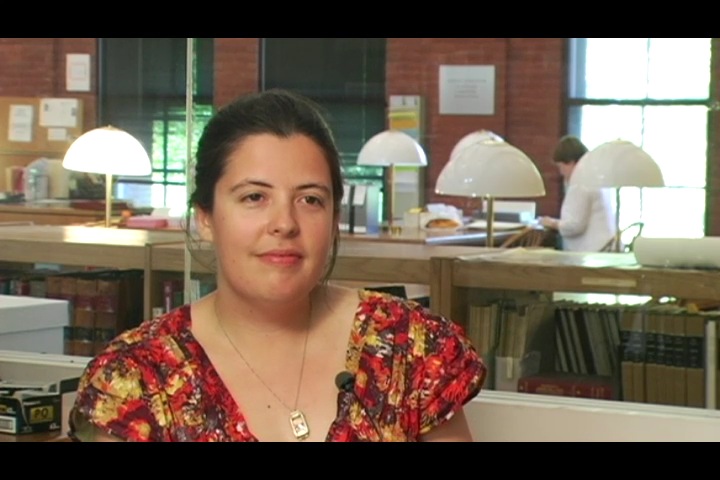
In this oral history, Jean Kahler discusses her decision to come to Smith, her experiences living in Hubbard House, her work as a theater major, her process of coming out as a lesbian, and the overall atmosphere surrounding homosexuality.
Ja'Milla C. K. Lomas, Class of 2000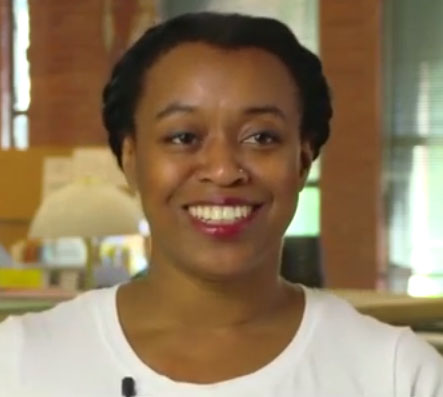
Ja’Milla Lomas begins her interview recounting her accidental introduction to Smith by way of Ruth Simmons, who visited her high school in Houston, Texas. She details her involvement in student government, close relationships with staff and faculty and how her close knit house community was interrupted by a racist incident during her first semester. Lomas explains how the incident affected the remainder of her Smith experience and compares and contrasts this with her Junior Year Away experience at Howard University. She describes the benefits and opportunities afforded her by her Smith network, after college, particularly during the 2007- 2008 recession, and credits them with encouraging her to pursue her passion.
Sindhumathi Revuluri, Class of 2000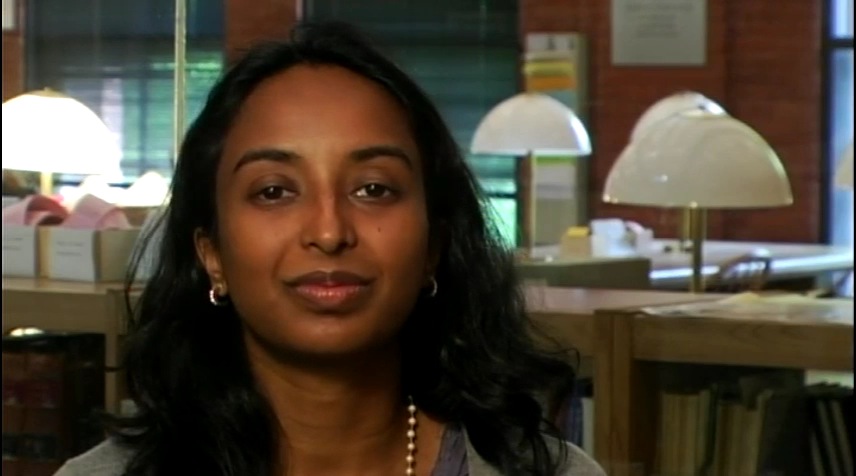
In this oral history, Sindhu Revuluri discusses her decision to attend Smith, her experiences living in King House, her participation in the Student Government Association and music clubs, her coming out experience, and her summer abroad in Ghana. She also describes the general campus atmosphere and incidents concerning conservative Smith students, as well as her graduate school experiences at Princeton University.
Access to this interview is restricted. If you would like to view the transcript, please email Nanci Young at nyoung@smith.edu.
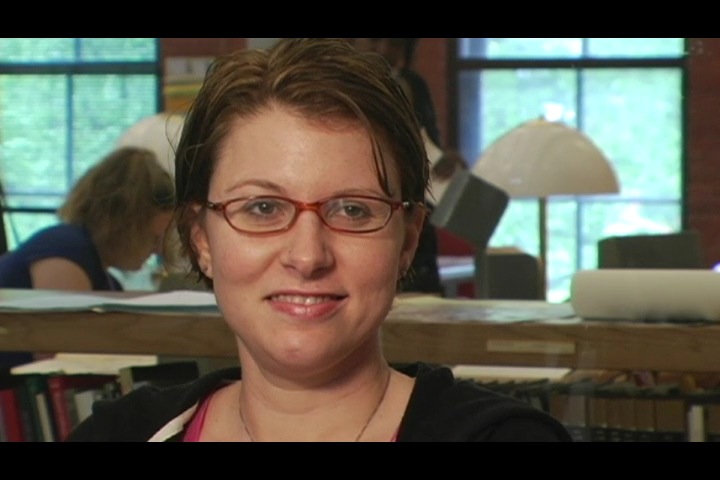 Sara Pic, Class of 2000
Sara Pic, Class of 2000
In this oral history, Sara Pic describes her involvement with activism at Smith (including her association with the Lesbian Avengers and working for transgender student rights), living in Hubbard House, her experiences abroad in Russia, her work as a Russian Civilization major and with the Study of the Women and Gender, and her decision to go to Northeastern Law School.
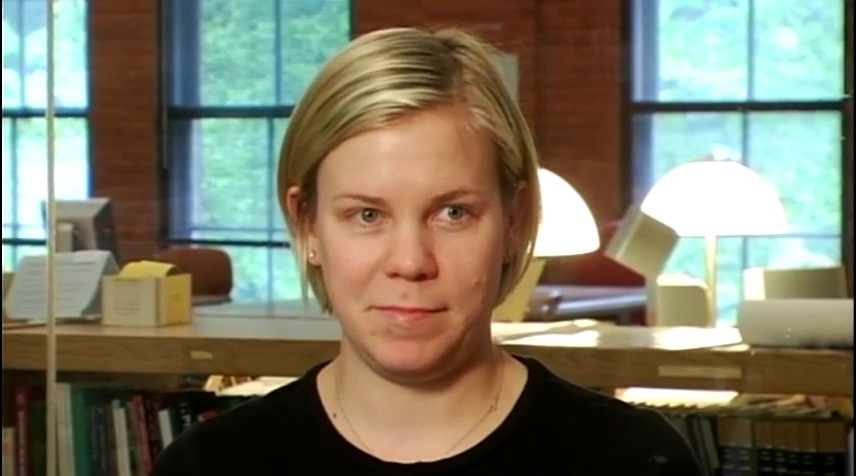 Melanie Rosen, Class of 2000
Melanie Rosen, Class of 2000
In this oral history, Melanie Rosen discusses her decision to attend Smith, her experiences living in Wilson House, working as a Gold Key guide, participating in the crew team, her work as a French studies major and Afro-American studies minor, and her time abroad in Paris and West Africa. She also describes the overall campus atmosphere and her experiences as a Fulbright Scholar after Smith.
Brittain Skinner, Class of 2000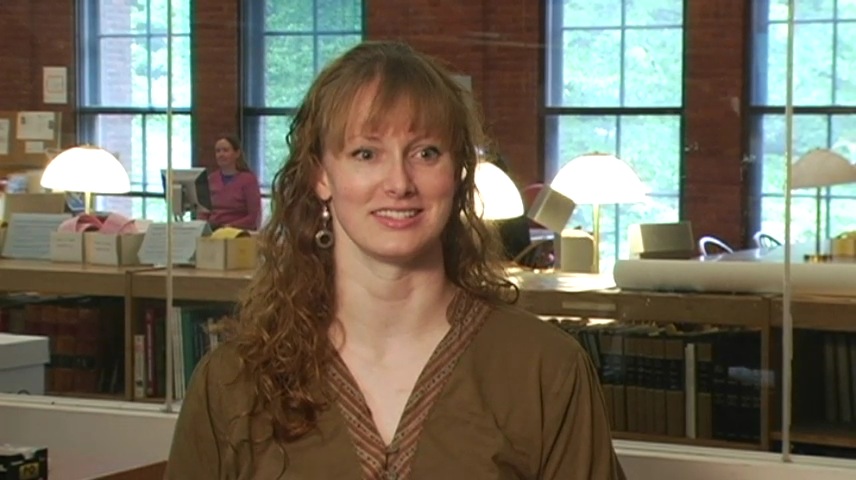
In this oral history, Brittain Skinner describes why she came to Smith, her experiences studying at the University of Kentucky for two semesters and how it compared to Smith, her work as an English major and biology minor, her experiences living in Wilson House and her role as house president, and her involvement with the Helen Hills Hills Chapel Protestant group. She also explains what it has meant to her to be a Smith graduate.
Access to this interview is restricted. If you would like to view the transcript, please email Nanci Young at nyoung@smith.edu.
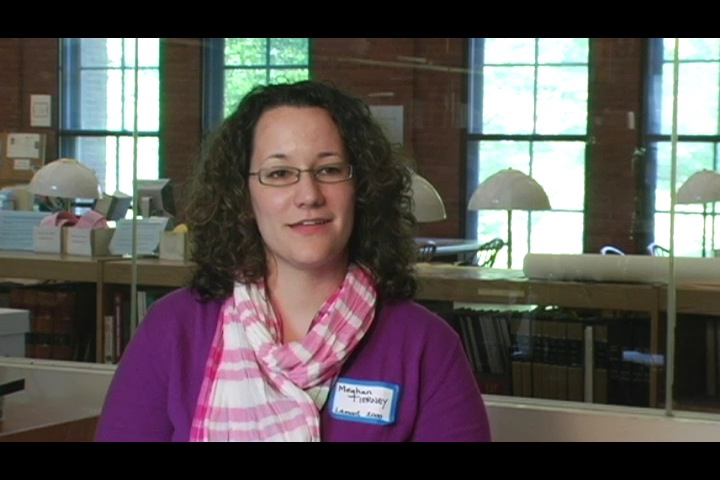 Meghan Tierney, Class of 2000
Meghan Tierney, Class of 2000
In this oral history, Meghan Tierney discusses her experiences living in Lamont House, playing on the volleyball and softball teams, acting as the vice president of her class, and working in the Alumnae House. She also describes her time at the Smithsonian program, her work as an art history major and archaeology minor, and her life after Smith.
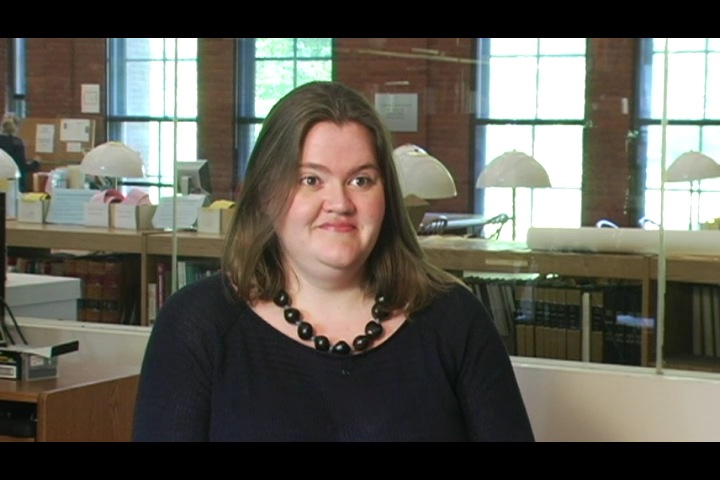 Sarah Trabucchi, Class of 2000
Sarah Trabucchi, Class of 2000
In this oral history, Sarah Trabucchi discusses her experiences living in Lamont House, participating in the theater department and working with the Northampton High School theater program, and her work as an American Studies major. She also talks about the 1996 presidential election, gay rights, and the general campus atmosphere.
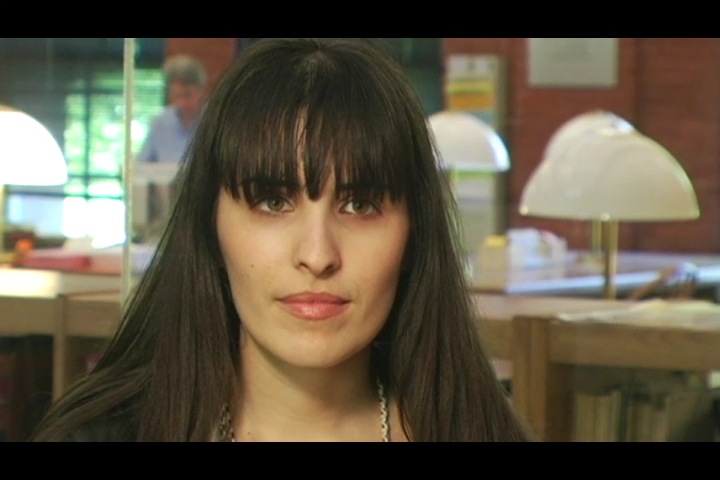 Sophia Wallace, Class of 2000
Sophia Wallace, Class of 2000
In this oral history, Sophia Wallace discusses her involvement with WOZQ radio, FIRE (Feminist Intercultural Revolutionary Encounter), PULSE (an art collective), rugby, and various activist activities. She also describes her appreciation of President Simmons, her experiences in Sessions House, her time studying abroad in Ghana, and the general atmosphere of Smith, particularly in regards to diversity.
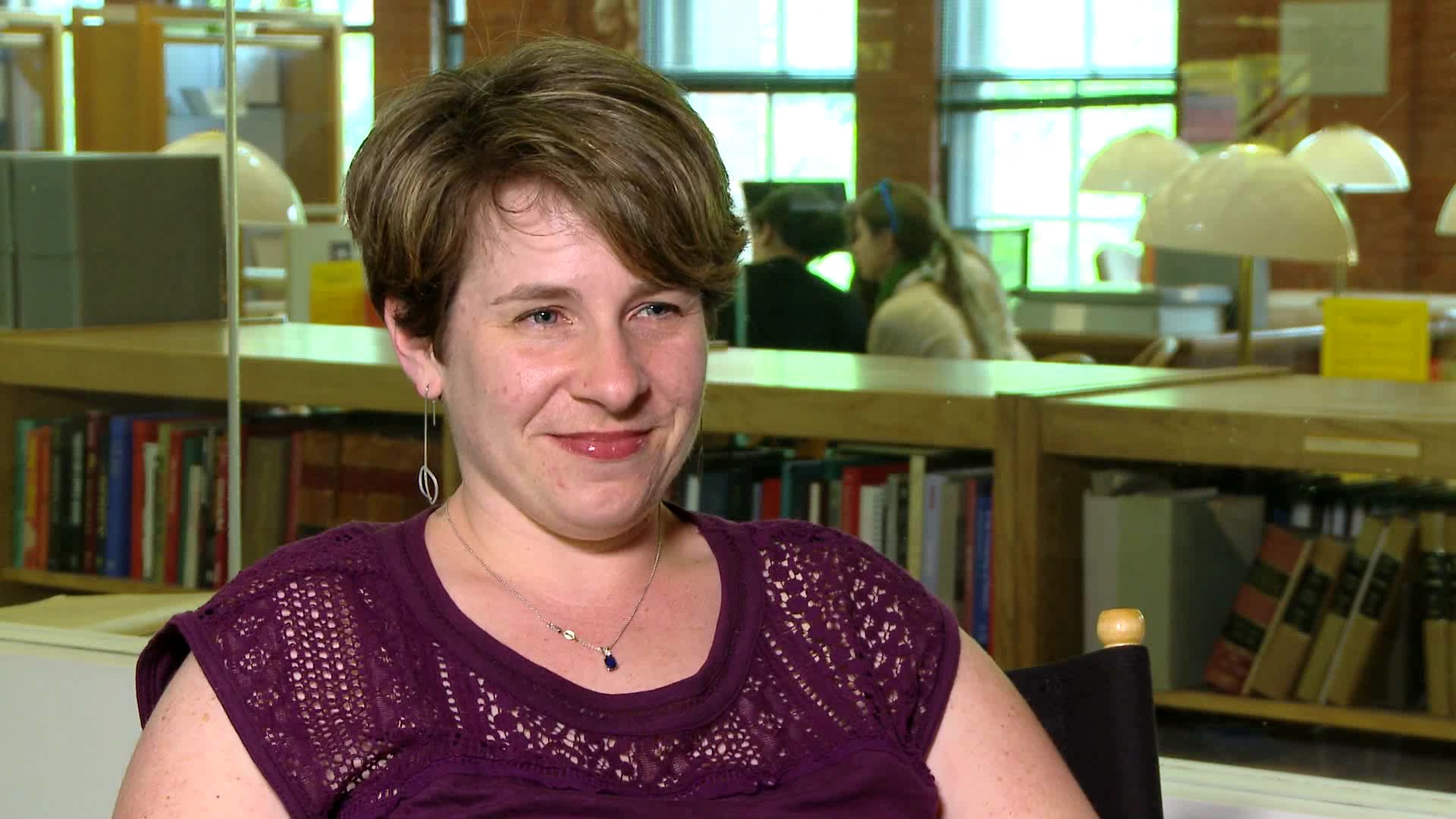 Brandy King, Class of 2001
Brandy King, Class of 2001
In this interview, Brandy King talks about transferring to Smith as a junior, the Women and Gender Studies Major, and Wilder House traditions. King also remembers her work as a Gold Key Guide for the college, and her work as a Resident Coordinator post-graduation.
Nina Moe, Class of 2001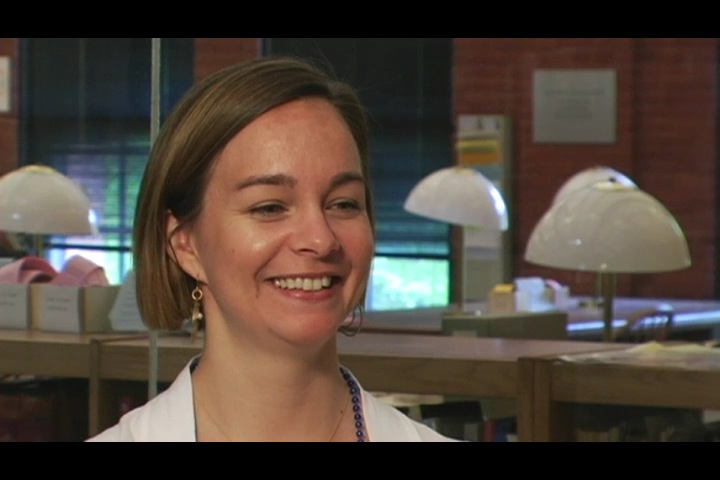
In this oral history, Nina Moe describes her experience coming to Smith from Europe (Norway and Poland), her coming out process, her work in the music department at Smith, and her current career as a musician. She also describes the campus atmosphere, including racial tensions and issues around sexual and gender diversity.
Access to this interview is restricted. If you would like to view the transcript, please email Nanci Young at nyoung@smith.edu.
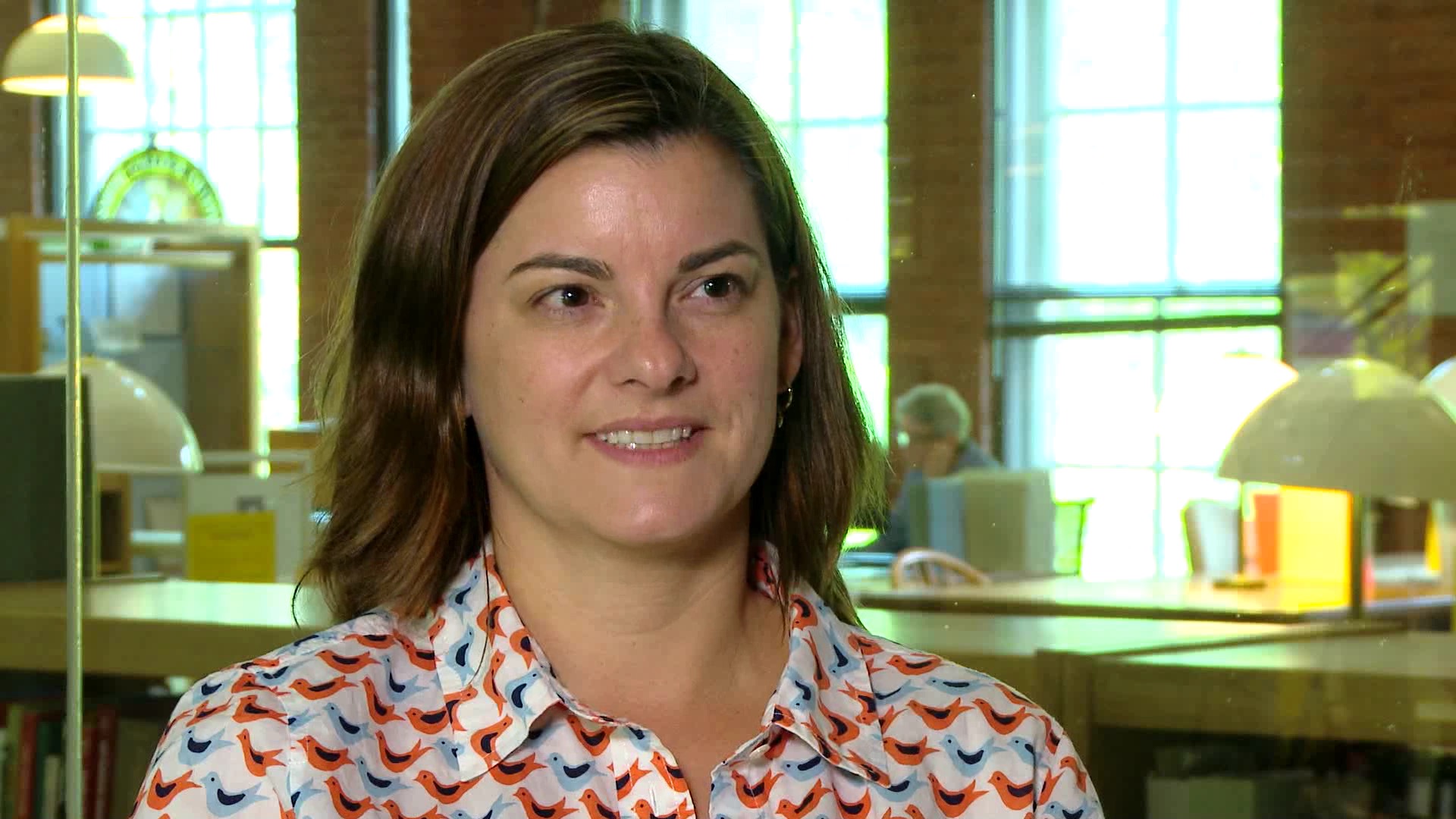 Elizabeth Owens, Class of 2001
Elizabeth Owens, Class of 2001
In her interview, Lizzie Owens remembers the exploits of Capen house, full of the parties, and pranks, and an indelible community. A transfer student, Owens also focuses on her time in the history department, including a class trip to Russia. Owens also highlights the Smith alumnae network in helping to find connections and friendships in her life post-graduation.
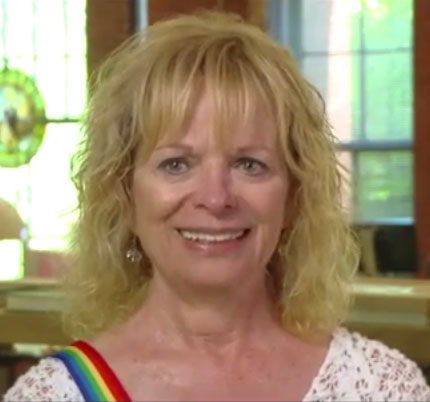 Faith Sullivan, AC 2002
Faith Sullivan, AC 2002
Faith Sullivan begins her interview discussing how she left nursing school at 19 to get married and start a family and how she eventually found her way to community college when her youngest child was in high school. Sullivan describes how the opportunity to attend Smith came about and how she was able to balance home, career and academic life as a nontraditional student. She attributes her courage and confidence to her Smith education, characteristics that enabled her to finish graduate school despite the death of her son, Tony. Sullivan discusses her time at Harvard Divinty and her current career in psychotherapy.
Jennifer Harmon, Class of 2003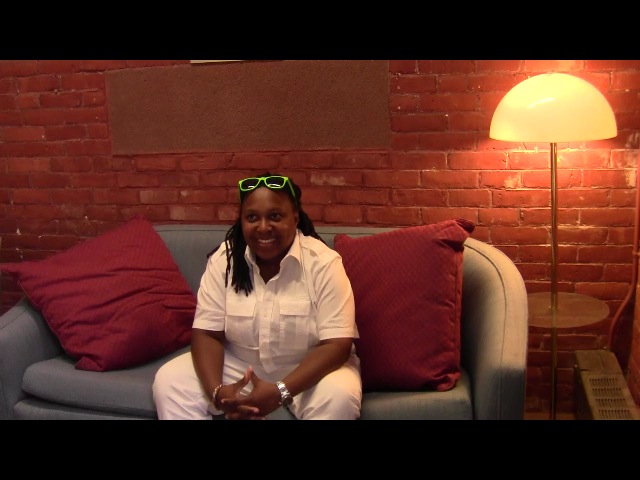
In this oral history, Jennifer Harmon reflects on her experience as a woman of color at Smith, the benefits of the Bridge program, political issues on campus around race and sexual orientation during her years on campus, and the importance of her house community in her Smith experience.
Access to this interview is restricted. If you would like to view the transcript, please email Nanci Young at nyoung@smith.edu.
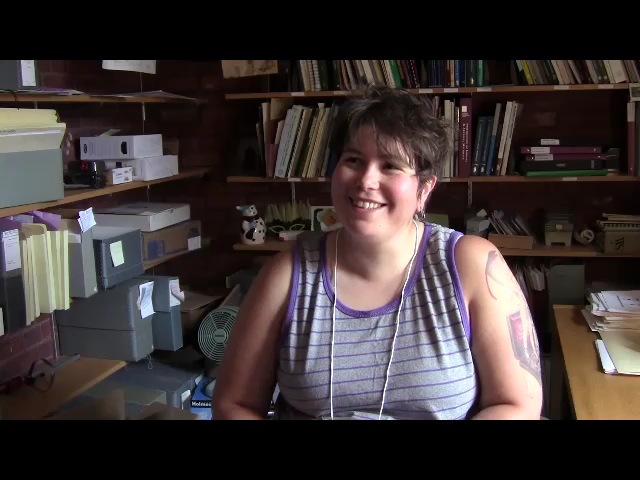 Allison Hector, Class of 2003
Allison Hector, Class of 2003
In this oral history, Allison Hector discusses the political environment during her college years, including the Iraq War and being on campus during the attack on the World Trade Center on 9/11, which occurred only weeks before she embarked on her junior year abroad. She recalls the importance of being with her Smith family during that difficult period, along with some other memorable events, including Madeleine Albright delivering her class's commencement address.
Access to this interview is restricted. If you would like to view the transcript, please email Nanci Young at nyoung@smith.edu.
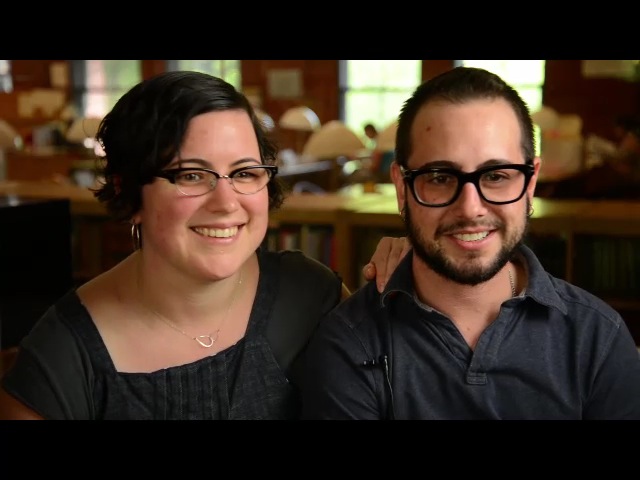 Erica Hieggelke, Class of 2003, and Fievel Gordon, Class of 2004
Erica Hieggelke, Class of 2003, and Fievel Gordon, Class of 2004
In this oral history, Fievel Gordon and Erica Hieggelke, who met as first-years, reflect with candor and humor on their evolution as a couple. Fievel discusses his own process of self-discovery while at Smith and they speak candidly about the issue of transgender students attending all-women’s schools. They also recall being together on 9/11 and the aftermath of that trauma on campus.
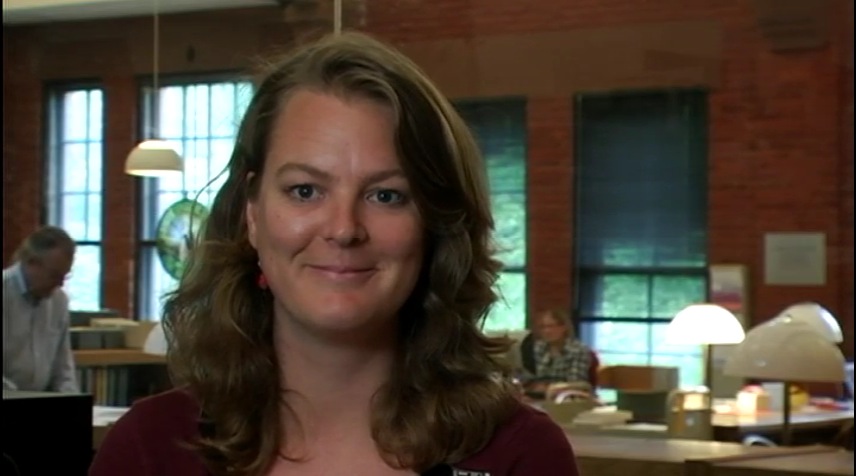 Eefje Blankevoort, AMS Class of 2004
Eefje Blankevoort, AMS Class of 2004
In this oral history Eefje Blankevoort compares the education system at Smith with her experiences in the Netherlands and discusses the new perspectives she received at Smith, her experiences in Iran before coming to Smith, and her surprise that the Iraq War was so ignored in the United States.
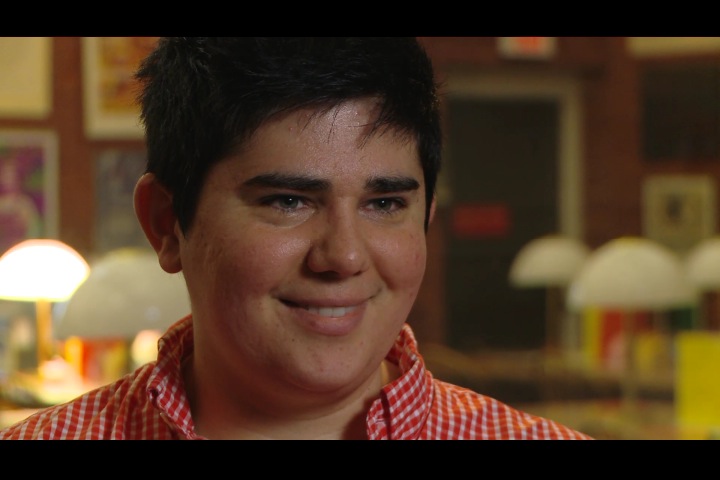 Caroline Pinto, Class of 2004
Caroline Pinto, Class of 2004
Caro Pinto begins the interview by remembering positive interactions with Smith alumnae that led her to apply. She discusses the queer community at Smith, the “politically correct” culture, and the political climate of the college. Pinto speaks positively about controversies at Smith and reflects on how the conversations that came out of controversies were helpful for many. She also chronicles her time at Smith in relationship to major national events such as the Bush v. Gore election and 9/11. Pinto ends the interview by discussing her career path in archival work after Smith.
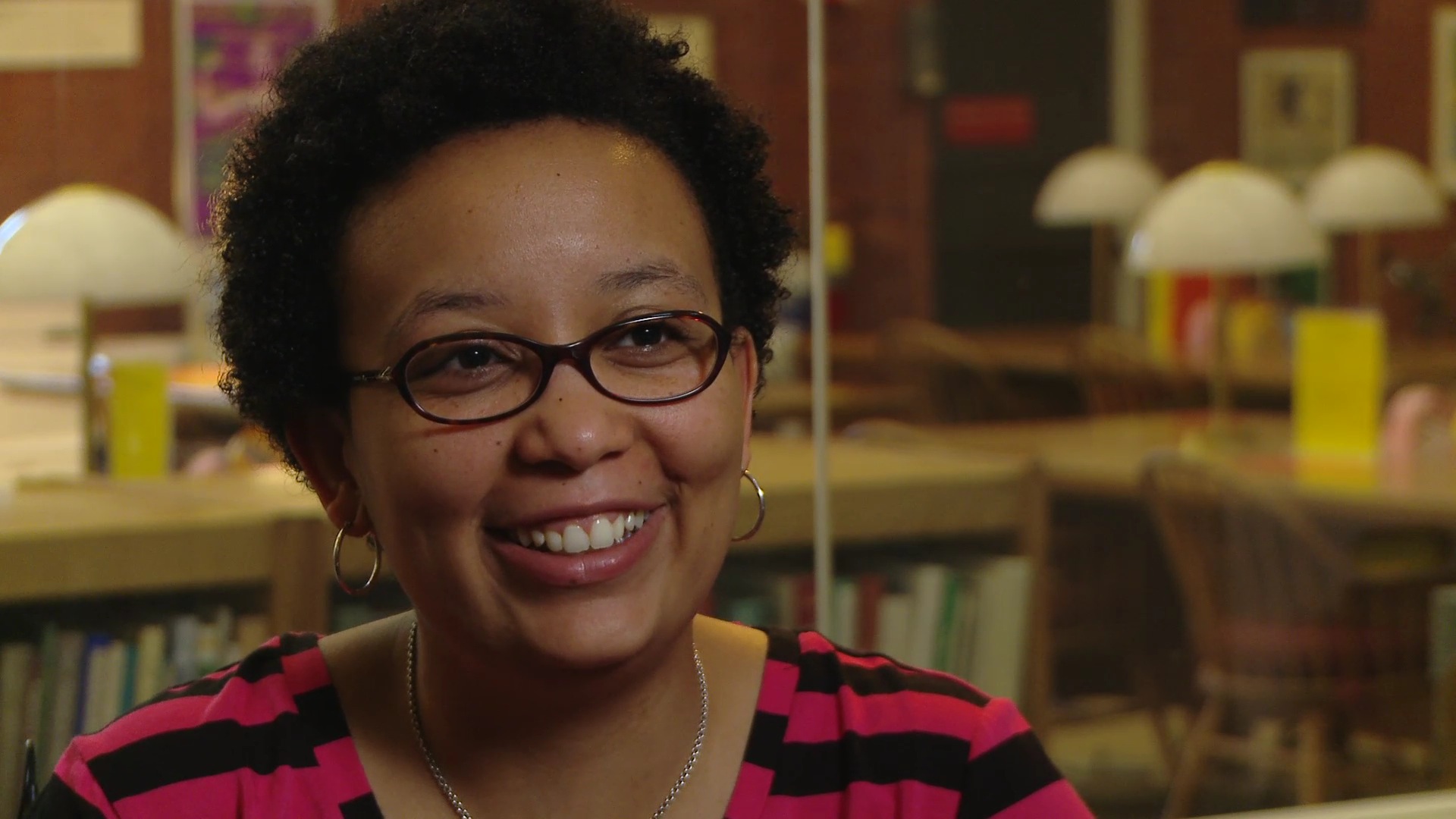 Rachel Willis, Class of 2004
Rachel Willis, Class of 2004
Rachel Willis begins her interview with the story of coming to Smith as a result of her sister attending before her. She recalls the campus reaction to 9/11. She moves on to tell about her close relationships with her friends in Wilder House and some of the pranks that they organized. She next talks about being on the croquet team all four years. Willis discusses the difficulties involved in the change of presidents from Ruth Simmons to Carol Christ, as well as the sense of pressure she felt to do great things after graduation. She recalls what it was like to be African American on campus and the reactions to racist incidents in the Quad. Willis concludes by talking about the role of the Internet in her college experience and the value of her relationships with professors.
 Clara Fang, Class of 2005
Clara Fang, Class of 2005
In this oral history, Clara Fang discusses her involvement with MassPIRG, working to oppose drilling in the Arctic National Wildlife Refuge, interning at the Environmental Science and Policy Program, working with the student group Gaia, and starting a student organization called Clean Energy for Smith. Fang also recalls living in Park House, going abroad at Oxford University, her experiences as an English major, racial tensions on campus, the impact of the September 11th attacks on Smith. Finally, she talks about her life after Smith, attending the University of Utah and Yale and working as an environmental professional.
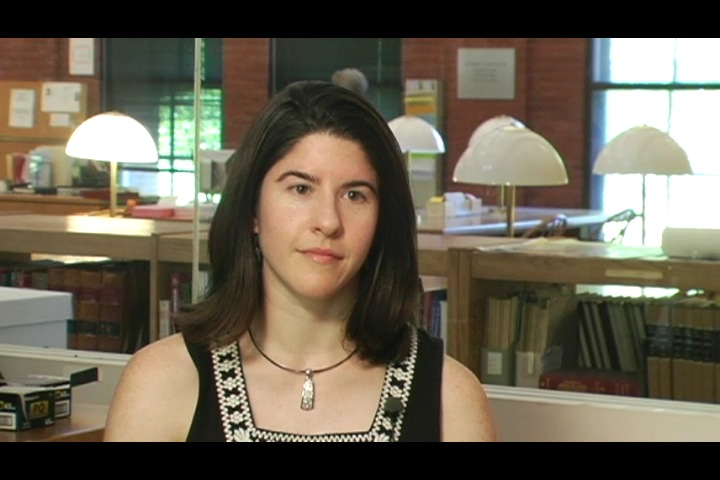 Katherine McCarthy, Class of 2005
Katherine McCarthy, Class of 2005
In this oral history, Katie McCarthy discusses her work as a psychology and education double major and her involvement with SGA and Senate, Healthy Heads (a mental health support group), and Residence Life. She also describes the racial tensions on campus and her experiences while abroad in Australia.
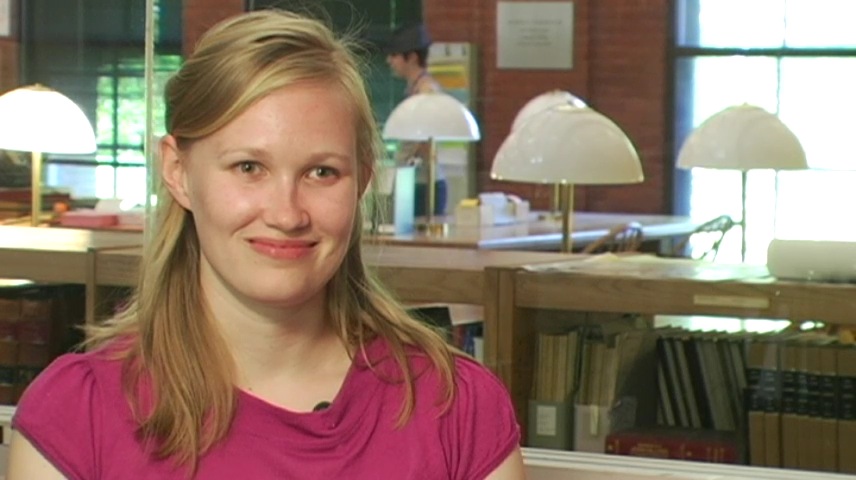 Christine Merrill, Class of 2005
Christine Merrill, Class of 2005
In this oral history, Christine Merrill discusses her experiences on the crew team and the swim team, her time abroad in Geneva, Switzerland and travels in Europe, and her work as an art history major.
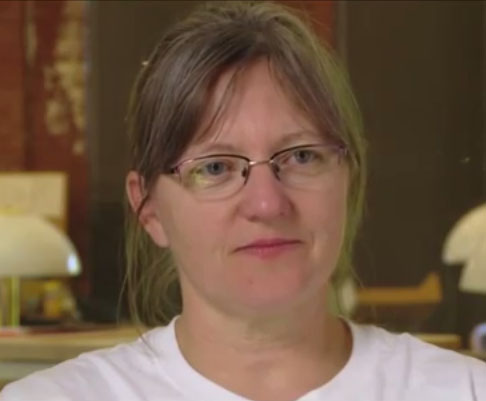 Heather Neal, AC 2005
Heather Neal, AC 2005
In this interview Heather Neal, recounts her dissatisfaction with her work in advertising, subsequent career change and return to community college where she learned about the Ada Comstock Scholars program at Smith. She recalls navigating campus life as a non-traditional student and her involvement in the Ada cabinet and extracurricular activities. Neal also describes finding feminism when she came out and how her Smith experience expanded on that prior knowledge and how higher education fosters female autonomy at any age.
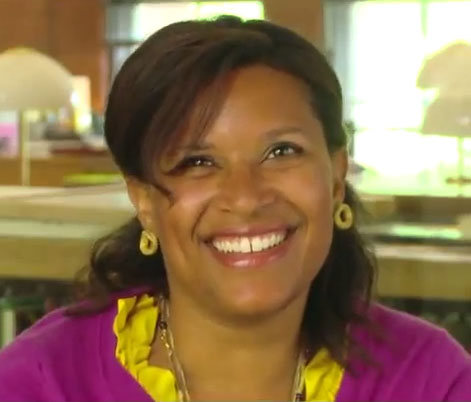 Devon Wilson-Hill, Class of 2005
Devon Wilson-Hill, Class of 2005
Devon Wilson-Hill recounts how her decision to attend Smith was cemented after a last minute visit to the campus. She discusses the close knit Hubbard House community and the close friendships she made as a result. Wilson-Hill also talks about her involvement in the Radical Cheerleaders, student response to racist incidences on campus and the September 11th attacks, and details a trip with fellow students to Washington, D.C. to participate in a march on Washington, protesting the war in Iraq. In closing, she considers the influence Smith continues to have on her life and career.
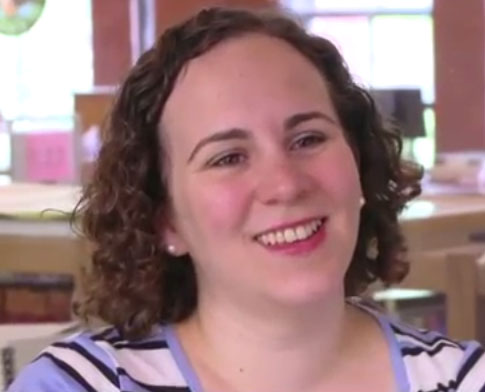 Sarah Winawer-Wetzel, Class of 2005
Sarah Winawer-Wetzel, Class of 2005
In this interview, Sarah Winawer-Wetzel describes her house community and social life during her first semester at Smith. She details campus response to the attacks on September 11th and the divisiveness that resulted from the amending of the student constitution to include gender neutral pronouns. Winawer-Wetzler discusses personal challenges and how her Smith career continues to influence her personal and professional life.
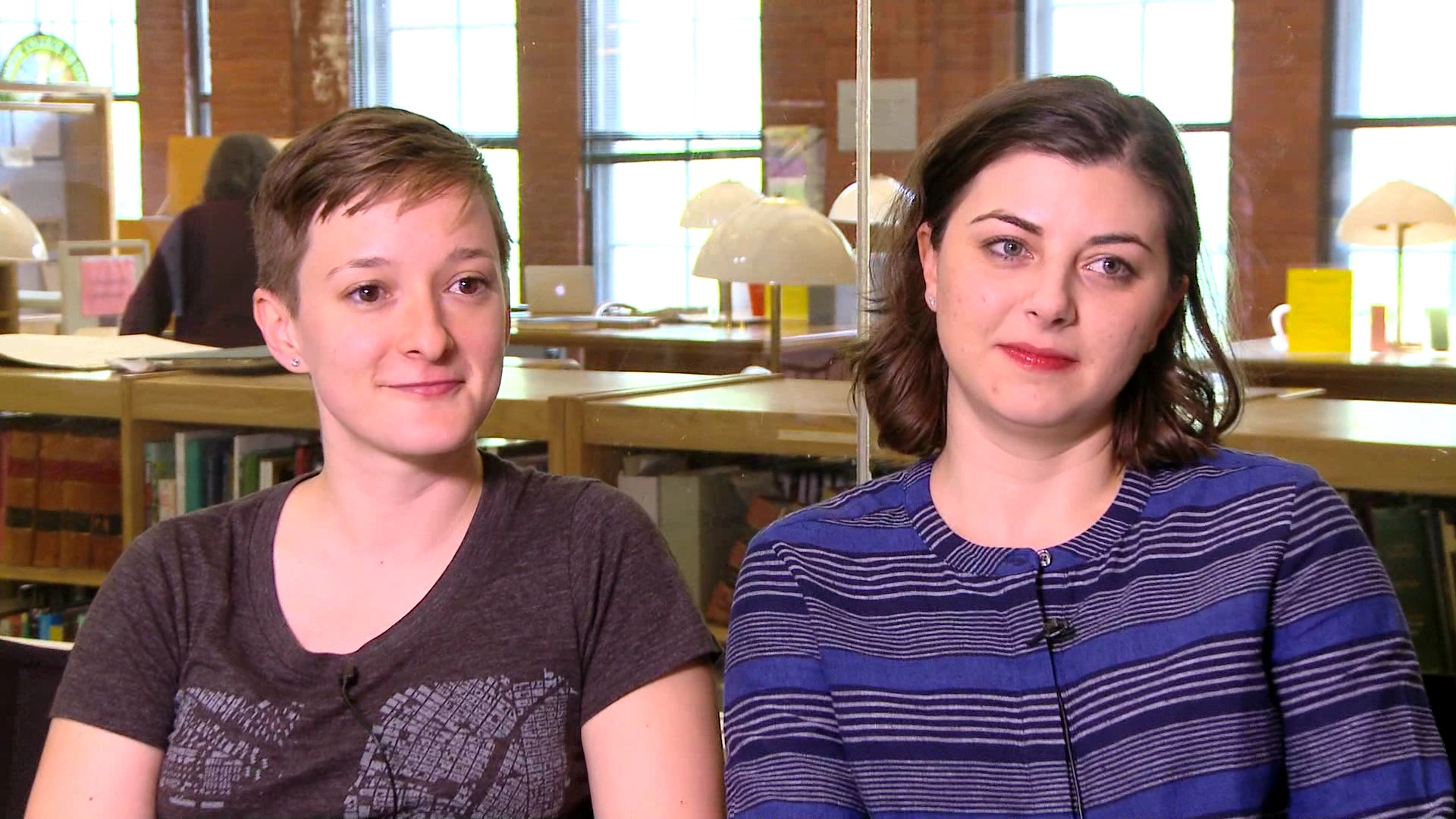 Jessica Chesnutt and Natalie Sauro, Class of 2006
Jessica Chesnutt and Natalie Sauro, Class of 2006
In this interview, Jessica Chesnutt and Natalie Sauro talk about their time at Smith, including how they met, the influence of feminism on campus culture, and favorite Smith traditions. Chesnutt was a member of Ziskind House and Sessions Annex, while Sauro lived in Albright House.
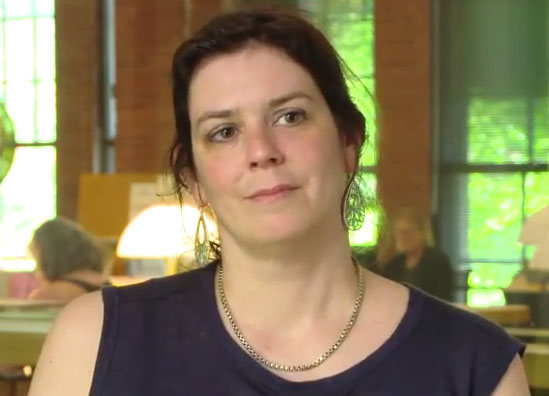 Laura Scandalis, AC 2006
Laura Scandalis, AC 2006
In this interview, Laura Scandalis describes her introduction to Smith as a young mother and paralegal and how she was able to navigate student life and balance her academics while parenting a young child. She talks about the support system that exists among Adas and her struggle to find her place within the larger student body. Scandalis details the importance of networking and how her Smith connections have continued to benefit her post-graduation.
Jennifer Barone, Class of 2008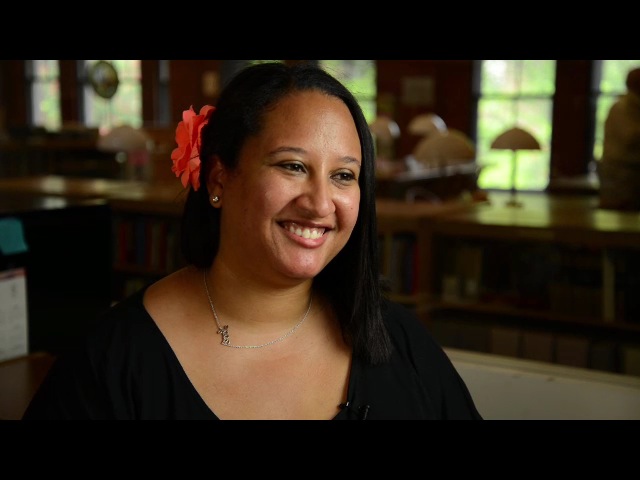
In this oral history, Jennifer Barone recalls political and social justice issues around race, sexual orientation and class on campus during her time at Smith and the student and administration response to those issues. She reflects on finding her voice at Smith and speaks about how she feels returning to Smith for reunion helps graduates stay connected to the sense of empowerment they experienced here.
Access to this interview is restricted. If you would like to view the transcript, please email Nanci Young at nyoung@smith.edu.
Alexandra Dellerson, Class of 2008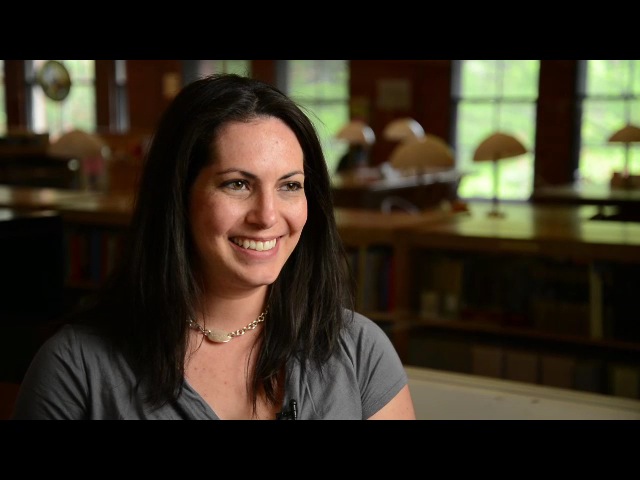
In this oral history, Alexandra Dellerson speaks about the importance of Smith's challenging academic environment as well as the open discussions of gender and sexuality. She recalls political and social issues on campus, including race and the presence of transgender students on campus and how the energy generated by that political climate contributed to her college experience.
Access to this interview is restricted. If you would like to view the transcript, please email Nanci Young at nyoung@smith.edu.
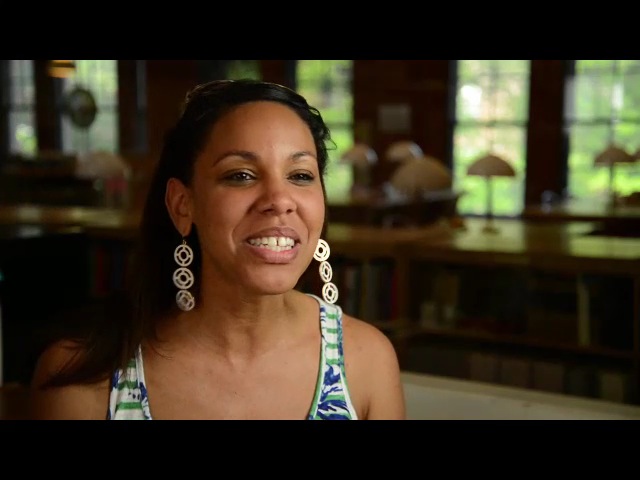 Theanne Griffith, Class of 2008
Theanne Griffith, Class of 2008
In this oral history, Theanne Griffith speaks of choosing to attend Smith because of its neuroscience program and her involvement with the Black Students Alliance and the Smith Democrats, as well as the Underrepresented Science Students group on campus. She speaks of the overall importance of maintaining a diverse student population and how her experiences with issues of diversity at Smith prepared her for her future.
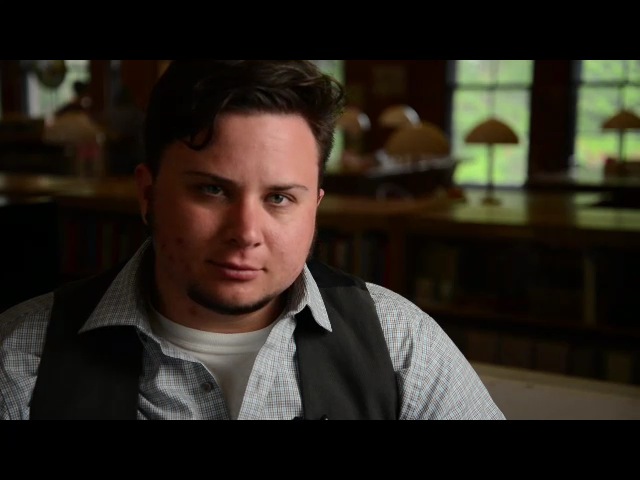 Ali Harris, Class of 2008
Ali Harris, Class of 2008
In this oral history, Ali Harris speaks about treasured Smith traditions, including Friday tea, which provided a space for her and her housemates to detach from the pressure of academic life, pause and reflect, and enjoy each other socially. She speaks of the commitment to community which she learned at Smith. She also recalls the mentors she met at Smith and the important role that mentorship played in her Smith life and beyond.
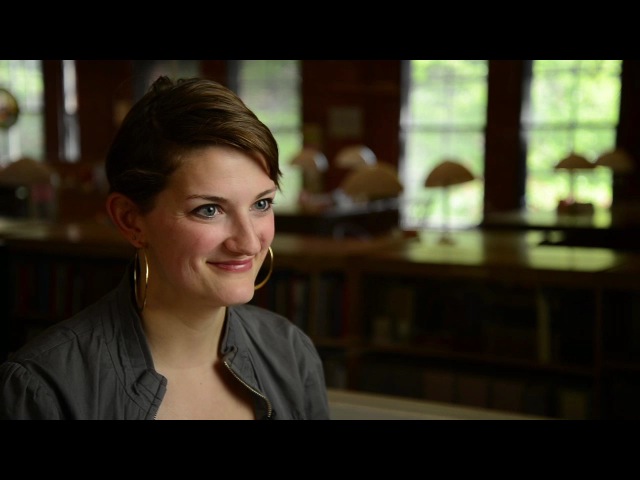 Julia Hudson, Class of 2008
Julia Hudson, Class of 2008
In this oral history, Julia Hudson talks about her views on Smith traditions, particularly Convocation, and the importance of the school’s house culture, especially in formation of strong, lasting friendships. She discusses the way political thinking was developed in conversation with other Smithies and how issues of race, religion and sex were all part of the conversation.
Allison Maranuk, Class of 2008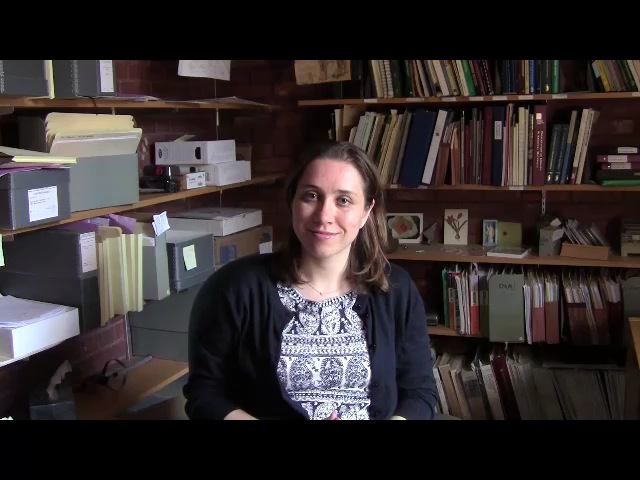
In this oral history, Allison Maranuk speaks of how her activism at Smith prepared her for her career. She recalls the politically-charged climate during her Smith years, four years which began during the Bush-Kerry election, included the recession and the Iraq War, and came to an end with graduation in the year of President Obama's election.
Access to this interview is restricted. If you would like to view the transcript, please email Nanci Young at nyoung@smith.edu.
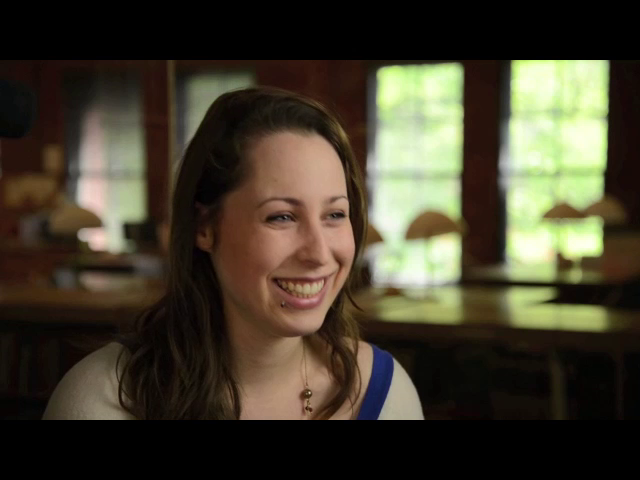 Eva Rabin, Class of 2008
Eva Rabin, Class of 2008
In this oral history Eva Rabin discusses the pull that attending Smith reunions has for her and her friends. She recalls her decision to go to Smith after attending an alumnae reception in California and her continuing admiration for Smith graduates. Rabin recalls her junior year abroad in Scotland and the ways in which that experience changed her future.
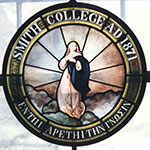 Emma Roderick and Justine Sheffler, Class of 2008
Emma Roderick and Justine Sheffler, Class of 2008
In this oral history, Emma Roderick and Justine Sheffler discuss changes in identity politics at Smith since their graduation. They recall social justice movements on campus and the learning that went on outside the classroom through that activism. They share memories from their time at Smith, including of a favorite J-term origami class.
Access to this interview is restricted. If you would like to view the transcript, please email Nanci Young at nyoung@smith.edu.
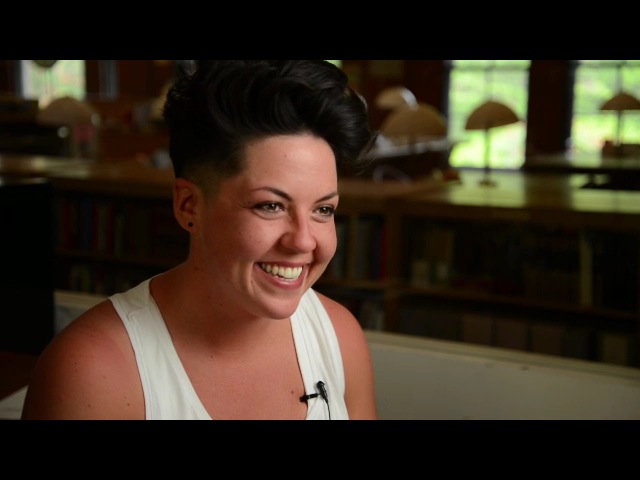 Miranda Simpson-Sawyer, Class of 2008
Miranda Simpson-Sawyer, Class of 2008
In this oral history, Miranda Simpson-Sawyer recalls the culture shock she experienced on arriving at Smith as a first-year, her favorite Smith traditions, like Convocation, and some of the professors who served as important mentors, and how that influenced her choice of a major.
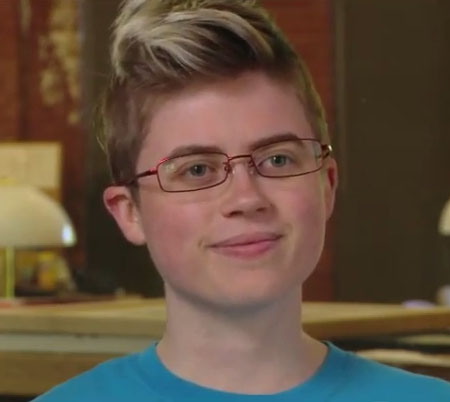 Jessie Taylor, Class of 2010
Jessie Taylor, Class of 2010
n this interview, Jessie Taylor describes her Smith experience as ‘coming home’ and details the sense of community and diversity found on campus upon her arrival in 2005. She also discusses political division among students during the Bush administration and Iraq War as well as the growing presence of trans and genderqueer students on campus. She discusses being raised as an atheist and majoring in religion as well as how her major applies to her present career in IT.
